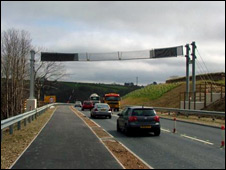MikeG
With the greatest of respect, my comments are from direct personal experience. Many of the problems bats face is a result of the legislation and the industry thats built up around it. It actively discourages homeowners from doing the right thing. My local Bat group no longer carry out surveys or recommend suitable persons as a result of the ecology firms creating a fuss over what they did.
The fees these firms charge are negligible for a developer wanting to demolish or convert a building and build a small estate but are anything but for an individual wanting to do a conversion/ extension etc.
Finding a small independent with a Bat Licence is becoming more than a little problematic, its almost a cartel.
The biggest issue is the roost potential surveys and any follow on emergence surveys, in the example given above for a barn conversion , you’d pretty much want any bats present to be found during the roost potential survey and hope that then you’re not down for the guideline of 3 emergence surveys that could require upto 4 observers each time (depending on barn size and visibility splays).
I’m all for looking after wildlife and encouraging it, but many firms are more than happy to push the boundaries wherever they can.
Bats are lovely things my mum has them in her barn in wales they’ve been there over 30 years, have resolutely refused to use the bat boxes put up for them and although their droppings are easy to find quite where exactly they roost we’re not sure. They exist quite happily alongside the resident barn owls, who over the years have reared over 30 young that have been ringed by the barn owl trust and a good number more that fledged before the ringing man made his annual visit.
The law on bats is clear, but if you genuinely think you have them, its far better to sit in your garden for a few weeks trying to see if they are emerging from your property before calling in the experts, its proving a negative that costs the big money. Locating the point they emerge from and pointing it out to the ecologist will save a fortune. Not hard to do a few net searches will tell you what and when to keep an eye out. Then mitigation in respect of the bats and proposed works can be dealt with.



































